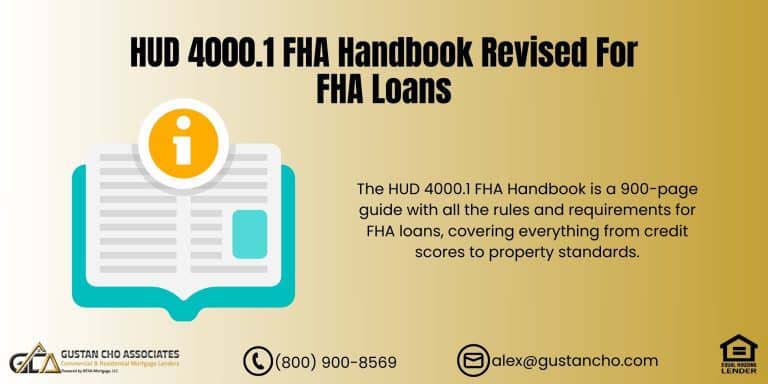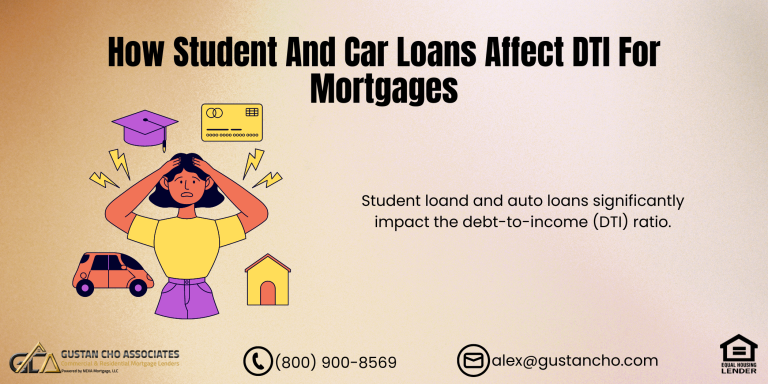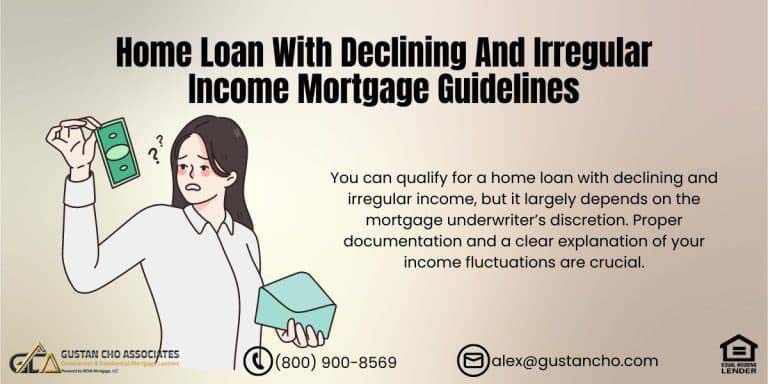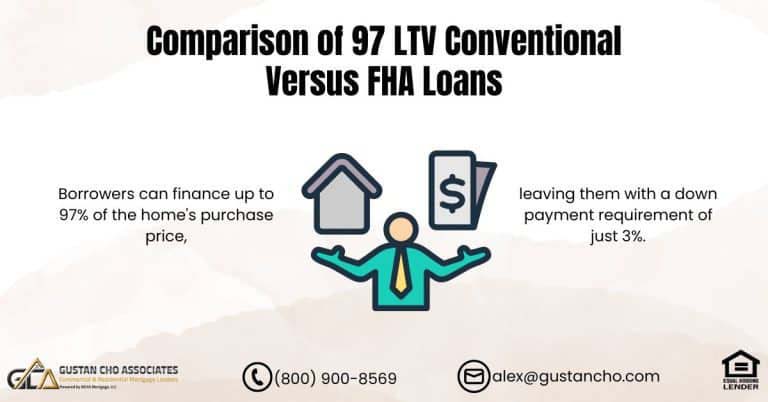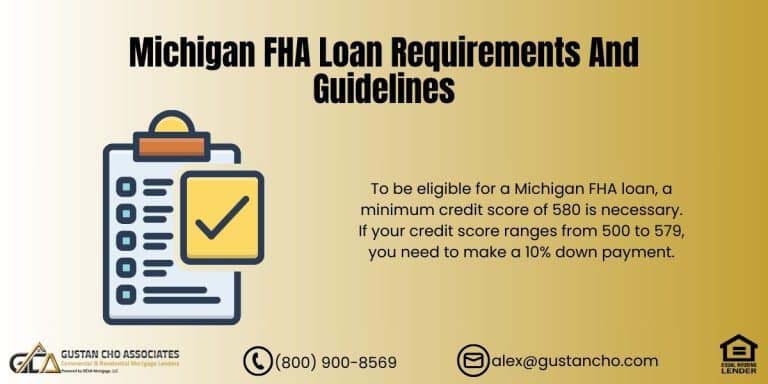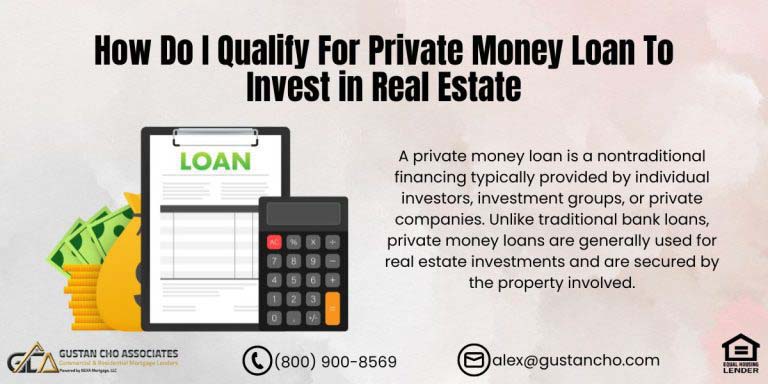This guide covers how to get the best mortgage rates on a home loan. How to get the best mortgage rates can be challenging but will be worth the time invested for a home purchase mortgage loan borrower as well as refinance borrowers. Mortgage rates vary depending on a mortgage loan borrower’s credit scores, debt-to-income ratios, and loan-to-value. Mortgage rates also vary from the various different mortgage loan programs, such as VA, FHA, USDA loans, non-QM, conventional, jumbo, and adjustable rate mortgages. Mortgage rates also differ from 30-year fixed rates, 15-year fixed rates, and adjustable rate mortgages. Depending on your goals and how long you intend to live in your home, how to get the best mortgage rates can be simplified with the advice of your mortgage loan originator
How to Get The Best Mortgage Rates
There are many mortgage loan products on the market today that you might qualify for: However, the question is: what is the best mortgage product for your needs and goals, and how are you going about getting the best mortgage rates for you? The best way to go about getting the best mortgage rates is by starting to eliminate the mortgage loan programs that you do not qualify for. For example, if you had a foreclosure three years ago, you cannot qualify for a conventional loan. This is because the waiting period to qualify for a conventional loan after a foreclosure is 7 years from the recorded date of the foreclosure. However, with a regular foreclosure, you can qualify for an FHA Loan, VA Loan, and USDA Loan. Borrowers can weigh their options with these three mortgage loan programs. They can see which loan program you qualify for and see the types of options these programs offer and how to get the best mortgage rates.
Qualify For An FHA Loan, VA Loan And USDA Loan
Apply Online And Get recommendations From Loan Experts
How to Get the Best Mortgage Rates on FHA Loans
FHA loans offer one of the best and most flexible mortgage loan programs for first-time home buyers as well as home buyers with prior bad credit and recent bankruptcy or foreclosure. A home buyer can qualify for a FHA-insured mortgage loan with a 580 FICO credit score and a 3.5% down payment. Home buyers who had a prior bankruptcy and the bankruptcy discharge were seasoned for at least two years can qualify for a FHA loan
Home buyers with a prior foreclosure, deed in lieu of foreclosure, or short sale can qualify for a FHA loan after 3 years from the recorded date of the foreclosure and/or deed in lieu of foreclosure or the short sale sales date reflected on the HUD settlement statement
Mortgage rates for FHA loans are lower than conventional mortgage rates. However, FHA has mandatory upfront and annual mortgage insurance premiums. The upfront FHA mortgage insurance premium is a one-time fee of 1.75%, which can be rolled into the loan. There is a mandatory 0.55% annual mortgage insurance premium for all 30-year fixed-rate FHA loans that can be quite costly. A home buyer can actually have a higher monthly housing payment with a lower interest FHA loan compared to a higher interest conventional loan due to the hefty FHA mortgage insurance premium. Home buyers should definitely compare which mortgage program is better and less costly for them and compare both FHA loans.
How to Get the Best Mortgage Rates on VA Loans
The United States Department of Veteran Affairs offers qualifying members of the United States Armed Services a valid Certificate of Eligibility (COE) VA loan: VA loans enable them to purchase a home with 100% financing where no money down is required. There is a funding fee but the VA funding fee can be rolled into the VA loan. There is no monthly mortgage insurance required on VA mortgage loans like there is for FHA loans. VA loans normally offer lower mortgage rates than FHA mortgage rates. VA mortgage lending guidelines are lenient than FHA loan programs. If you qualify for both VA and FHA loans, you can compare and shop how to get the best mortgage rates.
How to Get the Best Mortgage Rates on Conventional Loans
Conventional mortgage loans are called conforming loans due to the fact that they need to conform to mortgage lending guidelines set by Fannie Mae and Freddie Mac.
- Conventional loans have much tougher mortgage lending guidelines than FHA, VA, and USDA loans.
- Conventional loans have higher mortgage rates than government loans.
- The minimum credit score required to qualify for a conventional mortgage loan is 620 FICO.
- Conventional borrowers with lower credit scores will get much higher mortgage rates.
- A 620 FICO credit score is considered pretty low for conventional loans.
- Borrowers with a 620 FICO credit score will pay the highest available conventional mortgage rate.
- To get the best conventional mortgage rate, the loan applicant should have credit scores of 740 FICO or higher
With conventional loans, the more down payment a home buyer puts down or the lower the loan to value for refinance borrowers, the lower the mortgage rate. How to get the best mortgage rates. It may be more beneficial for you to get an FHA loan versus a conventional loan if you have lower credit scores.
How to Get the Best Mortgage Rates on USDA Loans
The United States Department of Agriculture offers USDA mortgage loans: Also called Rural Development, USDA is for qualified home buyers, which enable them to purchase a home in rural and suburban areas selected by the United States Department of Agriculture. USDA Loans offers 100% financing with no money down. The home needs to be in a USDA area, and there is a restriction on the maximum household income.
Ready To Process Conventional Loans
Apply Online And Get recommendations From Loan Experts
Non-QM Loans Versus Government and Conventional Loans
Gustan Cho Associates offers non-QM loans. Non-QM mortgages have no mandatory waiting period requirements after bankruptcy, foreclosure, deed in lieu of foreclosure, or short sale. Late payments in the past 12 months are allowed with non-QM loans. 10% to 20% down payment is required. There is no private mortgage insurance required. There is no maximum loan limit on non-QM mortgages. Non-QM mortgage rates are higher than government and/or conventional mortgage rates.
- Related> How to choose a mortgage lender
- Related> Choose the right type of home mortgage loan that makes sense to you
Frequently Asked Questions on How to Get the Best Mortgage Rates
How to Get The Best Mortgage Rates: Frequently Asked Questions
What Are Mortgage Interest Rates and How Are They Calculated?
Mortgage Rates Refer to rates on home loans that a lender provides to real estate buyers.
How Mortgage Rates Are Determined
- The mortgage lender and how much the lender wants to make
- The policies of the Federal Reserve
- Trends in inflation
- The borrower’s capability to repay the loan
Working for strong personal finances and monitoring the economic environment is advisable to get favorable rates.
Can a Low Credit Score Increase Mortgage Rates?
Yes, and significantly so. Most lenders review your credit score to help assess your reliability. Higher interest rates are associated with a lower credit score. The lender bears more risk.
How To Enhance Your Credit Score
Review your credit report for accuracy and errors.
- Pay bills on time
- Reduce debt
Is Getting a Mortgage With a Fixed Rate Better Than a Variable Rate?
That entirely depends on the origin of the mortgage. Stability coupled with lower payments is ideal for future long-term plans and is termed a fixed-rate mortgage.
Good for ownership over short terms is termed Variable Rate Mortgage: Possessing lower initial rates but with chances for fluctuation.
How Do I Get A Lower Rate When Applying For A Mortgage?
Here is what you should do:
- Research and compare as many lenders as possible.
- Use a pre-approved loan from other lenders to your advantage while negotiating.
- You can ask for reduced rates by using your credit score (particularly if it’s high) and other factors, such as strong financial standing.
Are There Government Programs That Offer Lower Rates?
Indeed, programs such as the FHA, VA, and USDA loans assist eligible borrowers.
- How to Get The Best Mortgage Rates on FHA Loans: Has low credit score and down payment requirements.
- How to Get The Best Mortgage Rates on VA Loans: Available solely to veterans. They offer lower rates than other loan types without requiring PMI (Private Mortgage Insurance).
- How to Get The Best Mortgage Rates on USDA Loans: Assists low-income purchasers in rural areas.
What Is The Best Time To Lock In A Noticeable Rate On A Mortgage?
The timing of your purchase is very important:
- Consider locking rates when the market appears to be increasing.
- Pay attention to the economic overview-related reports impacting the rates, such as inflation.
- Get a helping hand from specialists who assist and predict rate changes.
‘How to Get the Best Mortgage Rates’ – Several Questions and Answers
A lender sets mortgage rates for the mortgage on a housing loan. This mortgage now attracts charges that will impact the entire mortgage cost. Some of the determinants are:
Market Demand
- The supply and demand of mortgages in the housing market.
- Personal Finances include a borrower’s score, debt-to-income ratio, and financial history.
- Knowing these factors allows one to stay ahead of the curve regarding rate changes and terms.
How Does Credit Score Affect My Mortgage Rate?
One of the most important factors that affect your mortgage rate is your credit score. Each lender rates it very differently before providing margin money. Here is how it works.
Excellent Rating (750+) – The lowest rates in the market are available.
- Good Rating (700 – 749) – Rates are slightly higher than competitive rates.
- Fair Rating (650 – 699) – Substantially higher rates and tougher conditions.
- Poor Rating (<650) – The most expensive rates with limited options.
Tip: To raise your score, pay off debts, avoid late payments, and dispute inaccuracies in your credit report.
What Are Fixed And Variable Mortgage Rates? Which Is Better?
Two types of mortgage rates are the main focus:
Fixed-Rate Mortgages
- A fixed interest rate throughout the life of the loan.
- Great for someone looking to own a property for a longer time.
Variable-Rate Mortgages (ARMs)
- These start with lower initial rates but increase based on market conditions.
- They are most suited for short-term buyers or those expecting their income to increase.
The decision will differ depending on how long you want to live in the home and your financial objectives.
What Can I Do to Secure a Lower Mortgage Rate?
Learn what you can do to get better rates on mortgages: Compare Rates
- Check offers from lenders, online sites, banks, and credit unions.
- Check your credit score
- Decrease your expenses and keep a balanced credit utilization ratio.
Make a Bigger Down Payment
This reduces the risk so that you will receive a loan at a better rate.
- Select a shorter loan period.You will find better interest rates on 15-year loans than on 30-year ones.
- Watch the market trends: It’s important to trust the lenders when locking in rates; they want their rates to be competitive, so they will lower them when market trends are bad.
Are There Any Programs For the Government That Offer Lower Mortgage Rates?
Indeed, there are government programs that aid in acquiring a low rate:
- FHA loans: Designed for novice homebuyers and those with less credit.
- VA Loans: Done for active military members and veterans with no PMI and affordable rates.
- USDA Loans: Created for specific suburban or rural areas, with lower rates and better terms.
Always investigate what benefits the program offers and the eligibility you need to meet the requirements.
How Do Mortgage Rates Relate To Market Trends?
In essence, the state of the economy is the fundamental driver of the fluctuation of rates. For instance, below:
- Increase In Inflation: This leads to lenders increasing mortgage rates to accommodate reduced spending ability.
- Economic Slumps: Economic slumps typically lead to decreased rates as the central banks try to revive the economy.
- Housing Interest: An increase in buyer activity may increase rates, albeit temporarily.
Stay up to date and follow market reports so that you can ask an expert when to take a loan.
Is There A Good Period When One Can Fix A Mortgage Rate?
Being able to anticipate when to apply the rate lock is very advantageous.
- Lock When Necessary: This helps if you suspect rates will rise shortly.
- Keep An Eye On The Market: Significant changes in employment reports and inflation data may indicate future rate fluctuations.
- Restrict Rate Locking Changes: Locking your rate at a point too close to the closing period might shield the borrower from rate hikes.
Most lenders accept rate locks within 30 to 60 days, enabling the borrower to have leeway when purchasing a home.
Is It Possible To Change Mortgage Rate With Lenders?
Of course! Here are ways to achieve this:
- Be Informed: Have quotations from different lenders ready to use when needed.
- Make Your Case: Strongly emphasize your credit score, income, and down payment.
- Ask to Match: When one lender offers better conditions, ask the rest to match or improve the terms offered.
Borrowers have a lot of leeway in negotiation, so go ahead and do it. Broadening one’s negotiation scope greatly can yield big savings.
What Mistakes Ought One Avoid While Sourcing Mortgage Rates?
- Failure to Compare: You may pay more if you do not check with various lenders.
- Closing Costs: A very low interest rate could lead you to mask other costs, hurting you instead.
- Ignoring Credit Scores: Not taking stock of your credit status can land you in trouble.
- Rate Lock: Delaying locking it may leave you vulnerable to rising rates.
Tip: During the mortgage process, remain informed and active to avoid unnecessary headaches.
A complicated interplay of factors determines the best mortgage rate. However, favorable rates can still be worked out by improving your ratings and considering particular programs with the help of negotiations. Rejoice in the thoughts of do n’ts; there’s always a smarter way to do it. With all the tips provided, here is an affordable and smoother way to buy a home.
The FAQs
What impact does high ‘Down Payment’ have on mortgage rates?
- Usually, a high down payment means less risk to lenders regarding repayment of loans and better, reduced rates of interest.
Am I eligible to refinance my mortgage for lower rates?
- Refinancing is a great way to secure a casual interest rate, lessening monthly repayments or shortening the loan term. The answer is a big yes. All these and more can be done with the help of refinancing.
Q3: What documents do I need for a preapproval?
- You’ll need proof of income, tax returns, bank statements, and a credit report.
Q4: Are online lenders providing mortgage loans trustworthy?
- Numerous online lenders offer attractive and beneficial offers. However, before you sign up with one, research it and check its reviews.
Q5: For how long do I have to live in a home to gain from a fixed-rate mortgage?
- A fixed-rate mortgage is perfect if you plan to live in that home for 7-10 years.
Q6: How significant is the debt-to-income ratio in mortgage approval?
- Your debt-to-income ratio is an important aspect, as lenders use it to calculate your ability to pay the loan. Typically, lower ratios mean better rates and chances of approval.





